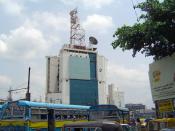India's telecommunications market began to be liberalised in 1992, when the value-added services and metropolitan paging services markets were opened to competition. Since then, additional markets have been liberalised and the sector is now fully-open to competition. Nevertheless, the state-owned domestic fixed-line and domestic and international long-distance carriers have managed to maintain their dominance of the sector, partly due to their entrenched position, partly because they have been able to draw on vast amounts of finance, but mostly due to the complex regulatory regime and the ineffectiveness of the supposedly independent regulator to get tough with the incumbents. India's volatile economic and political climates have also mitigated against many of the new entrants' success, but it should be noted that a number of Indian conglomerates are the driving forces behind most of the private operators that have been able to make headway.
Arguably, it was the liberalisation of the cellular and basic fixed-line services markets that provided the crucible from which the new Indian telecommunications market has been forged.
Successful cellular operators are those which have also been able to make progress in offering basic fixed-line services, and these have naturally evolved to the point where they have comfortably entered the domestic and international long-distance markets. The liberalisation of the Internet access market has also provided much of the impetus for change in recent years.
The Indian government controls the sector's largest operators, owning 100% of Bharat Sanchar Nigam Ltd (BSNL), the operating arm of the Department of Telecommunications (DoT) that was corporatised in 2000 and established as a stand-alone, but state-controlled company. BSNL offers fixed-line and wireless telecommunications services on a local and long-distance basis throughout India, except in the cities of New Delhi and Mumbai, where 55.6% state-owned Mahanagar Telephone Nigam Ltd (MTNL) is the incumbent. Shares, global...


